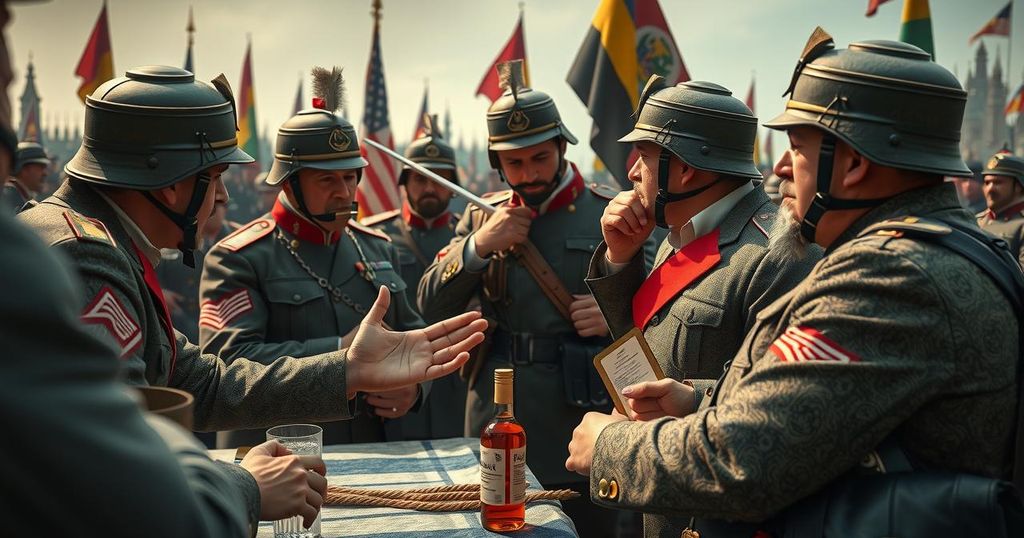World news
ASIA, ENERGY INFRASTRUCTURE, EUROPE, EUROPE/ASIA, INTERNATIONAL RELATIONS, KOREAN NIS, MILITARY, MISSILE ATTACK, MONGOLIA, NATIONAL INTELLIGENCE SERVICE, NIS, RUSSIA, RUSSIA-UKRAINE WAR, SECURITY SERVICE OF UKRAINE, TURAN, UKRAINE, VLADIMIR PUTIN, VOLODYMYR ZELENSKY, WAR, ZE, ZELENSKY
Sofia Rodriguez
0 Comments
Zelensky Proposes Exchange of North Korean Soldiers for Ukrainian POWs
Ukrainian President Volodymyr Zelensky has proposed returning two captured North Korean soldiers in exchange for Ukrainian prisoners held by Russia. These soldiers, captured on January 9, are currently in Kyiv receiving medical treatment. The SBU has raised concerns about their identities, and Zelensky’s office indicates that Russia may be concealing their North Korean origin. The involvement of North Korean troops in the conflict marks a significant geopolitical development in the war.
Ukrainian President Volodymyr Zelensky has proposed a prisoner exchange involving two captured North Korean soldiers, offering to return them to North Korea in exchange for Ukrainian prisoners held by Russia. Zelensky asserted on social media that alternative options will be available for North Korean soldiers who choose not to return, particularly those committed to promoting peace and truth regarding the conflict. The Security Service of Ukraine (SBU) indicated that these soldiers were captured on January 9 and are currently receiving medical care in Kyiv, with assistance from the South Korean National Intelligence Service (NIS). Details surrounding their capture have raised questions about the presence of North Korean troops in the conflict; previously, Russian President Vladimir Putin acknowledged Russia’s sovereign decision to utilize North Korean forces in its military operations. During interrogations, one soldier claimed to have been assigned to training rather than combat duties. The SBU reported that one of the captured individuals possessed a Russian military ID card issued to another person, further complicating the situation. Zelensky’s office suggested that Russia is concealing the soldiers’ North Korean origins by providing misleading documentation. Notably, reports indicate that North Korea has sent a significant number of troops to Russia, with other intelligence confirming high casualty rates among these forces. In light of these developments, Zelensky stated that the reliance of the Russian army on North Korean military support is unequivocal.
The ongoing war in Ukraine has seen various foreign confrontations, including the involvement of North Korean troops. In December, the South Korean intelligence agency estimated that North Korea had dispatched approximately 10,000 soldiers to support Russia’s aggression against Ukraine. This has elicited a range of responses from international observers and has raised concerns about human rights violations among those soldiers. The Geneva Convention emphasizes the humane treatment of prisoners, asserting that they must be questioned in a language they understand and protected from unnecessary exposure. The current dynamics of this conflict require keen attention to the engagement of foreign troops, their treatment, and the geopolitical implications of such alliances.
In conclusion, President Zelensky’s offer to exchange captured North Korean soldiers for Ukrainian prisoners highlights the complexity of the ongoing conflict and the international ramifications of such military alliances. The presence of North Korean troops on the Russian side points to a significant dependence on foreign military support in the war against Ukraine. The treatment of prisoners and the transparency regarding their identities are crucial aspects that merit close monitoring as the situation evolves.
Original Source: www.bbc.co.uk




Post Comment